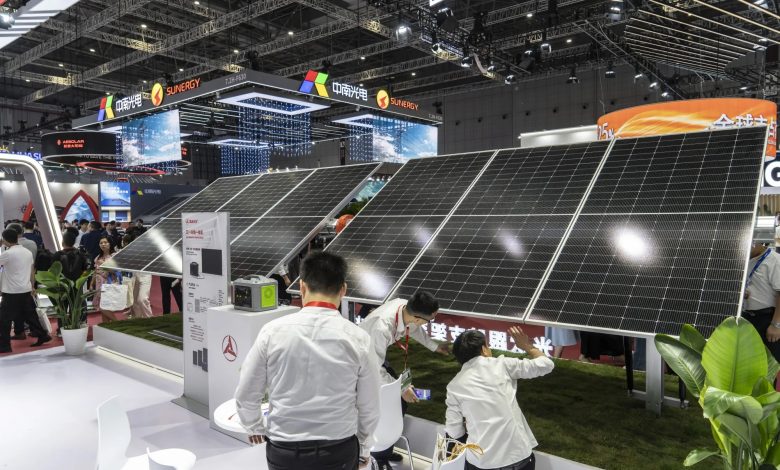China clean energy sector eyes US$100 billion in overseas spending

CHINA’S world-leading clean energy companies are investing more abroad amid fierce domestic competition and trade tensions with rivals like the US, according to a report by Climate Energy Finance.
From solar farms and battery factories to hydroelectric dams and transmission lines, Chinese firms have announced plans for an estimated US$100 billion in clean technology spending overseas in the past two years, the Sydney-based think tank said in the report.
The investments underscore the pressure Chinese manufacturers face as the US and Europe ramp up sanctions, and as a surge in domestic capacity drives down prices and profit margins at home. It also reflects the country’s evolution over the last four decades, from being mainly an importer of new ideas and technologies to now being an exporter of them.
“When Chinese firms build a production facility elsewhere, it brings its technology, expertise, capital, experience, as well as opportunities for expanding local labour markets and boosting other nations’ domestic energy transition,” said Xuyang Dong, an energy policy analyst and one of the report’s authors.
Not all of the announced investments may come to fruition, Dong said, as the same pressures driving the move overseas are also undermining companies’ balance sheets. But many are already underway, such as a 7.3 billion euro (S$10.4 billion) Contemporary Amperex Technology Co Ltd battery factory in Hungary.
China spent US$676 billion on its energy transition last year, more than double any other nation, and it dominates global production of solar panels, batteries, and electric vehicles. That’s helped drive down prices of clean energy technology, but has spurred restrictive trade measures from the US and Europe to India, as nations try to protect their own manufacturing sectors. By investing in factories overseas, Chinese firms hope to eliminate that barrier, Dong said.
“Hopefully, China can turn its overcapacity into equally distributed deployment globally,” she said. BLOOMBERG

